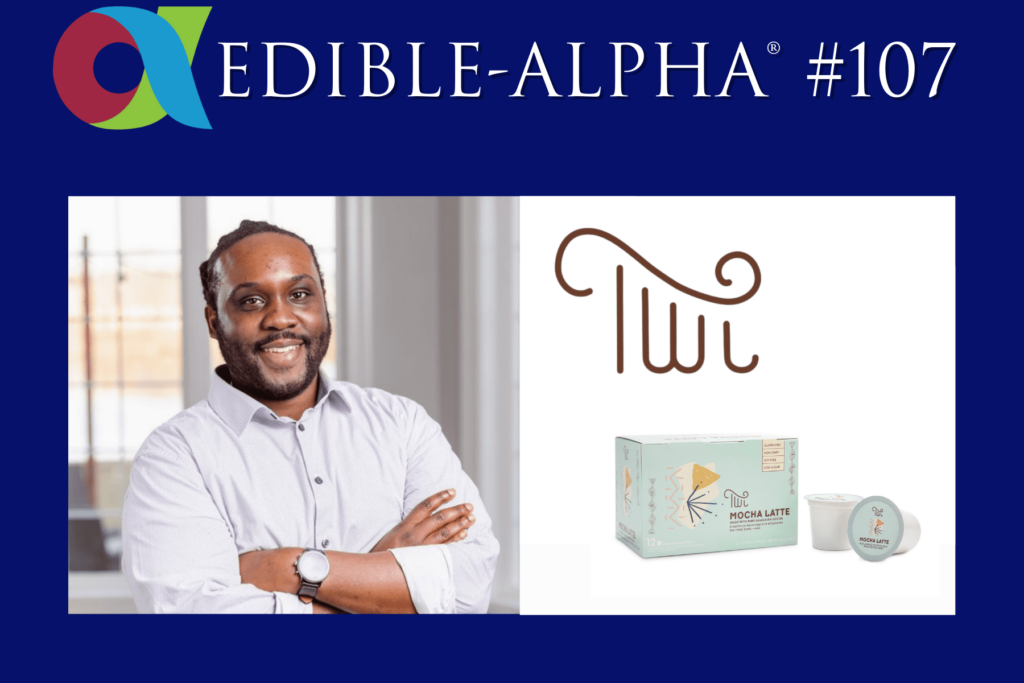Subscribe: Apple Podcasts | Spotify | Amazon Music | iHeartRadio | RSS | More
In Edible-Alpha® podcast #107, Brad sits down with Kwadwo Owusu-Ofori, founder and CEO of Twi Pods, maker of single-serve hot cocoa and mocha latte enriched with mental wellness–supporting nutrients. The duo delves into the arc of entrepreneurship in today’s world, how it has evolved, and the tools founders need now to grow a viable food business.
First, Kwadwo shares his unconventional path to starting a food company. While working toward his Ph.D. at the University of Wisconsin-Madison School of Pharmacy, he realized he’d rather create products that could help people directly than focus on research. This was around the time The Lean Startup was published, Shark Tank was becoming a hit, and there was big buzz around entrepreneurship.
Kwadwo wondered if lean startup principles could be used to streamline drug development and health care access. He landed a spot in the Kauffman Foundation Global Scholar Program, which teaches academics business skills to focus their research on entrepreneurship. But rather than start a drug company as he’d planned, Kwadwo pivoted to food. Wanting to help the millions of people who grapple with anxiety, he designed a convenient way to deliver daily magnesium and other stress-busting nutrients: through canned coffee creamers.
Kwadwo launched Satori Food Project on Etsy while also working full-time. After so-so success, he quit his job and went all in. Sales increased, but profits did not, and production got harder. With his Kauffman training, plus tools he’d picked up from FaB Wisconsin (where he met Brad) and various accelerators, Kwadwo knew to step back, do a postmortem, and re-strategize.
He realized something huge that changed his whole attitude toward production and funding: Instead of deciding what he could achieve based on the resources he had, he should be asking, “what does this look like, finished and polished, and what resources do I need to create that?” With this “prime organization” approach, he knew he must sell on a bigger platform like Amazon, find a surefire way to keep up with production and raise enough money to get there.
Kwadwo also realized that his product was odd and messaging too scientific. So he ditched the creamers, launched hot cocoa and mocha pods for Keurig machines, simplified the messaging, and changed the brand name to Twi Pods. These moves proved successful, and the company has now transitioned from startup to small business.
From there, Brad brings in the three-year go-to-market arc he emphasizes in the Food Finance Institute Fellows Program, in which he helps founders map out their growth plans. Kwadwo mentions four key stages: sell a product, sell it reliably, sell it at scale, then sell it at profit. They discuss how entrepreneurs in their 30s and 40s tend to excel, thanks to more industry experience and patience.
Next, they discuss how cost-cutting, right-sizing, and outsourcing in corporate America have destroyed worker loyalty and created a lane for entrepreneurship. But without the skills development and network building that corporations used to provide, entrepreneurs must navigate their own path. This is where FFI, FaB Wisconsin, university programs, and economic development organizations can be a huge help.

